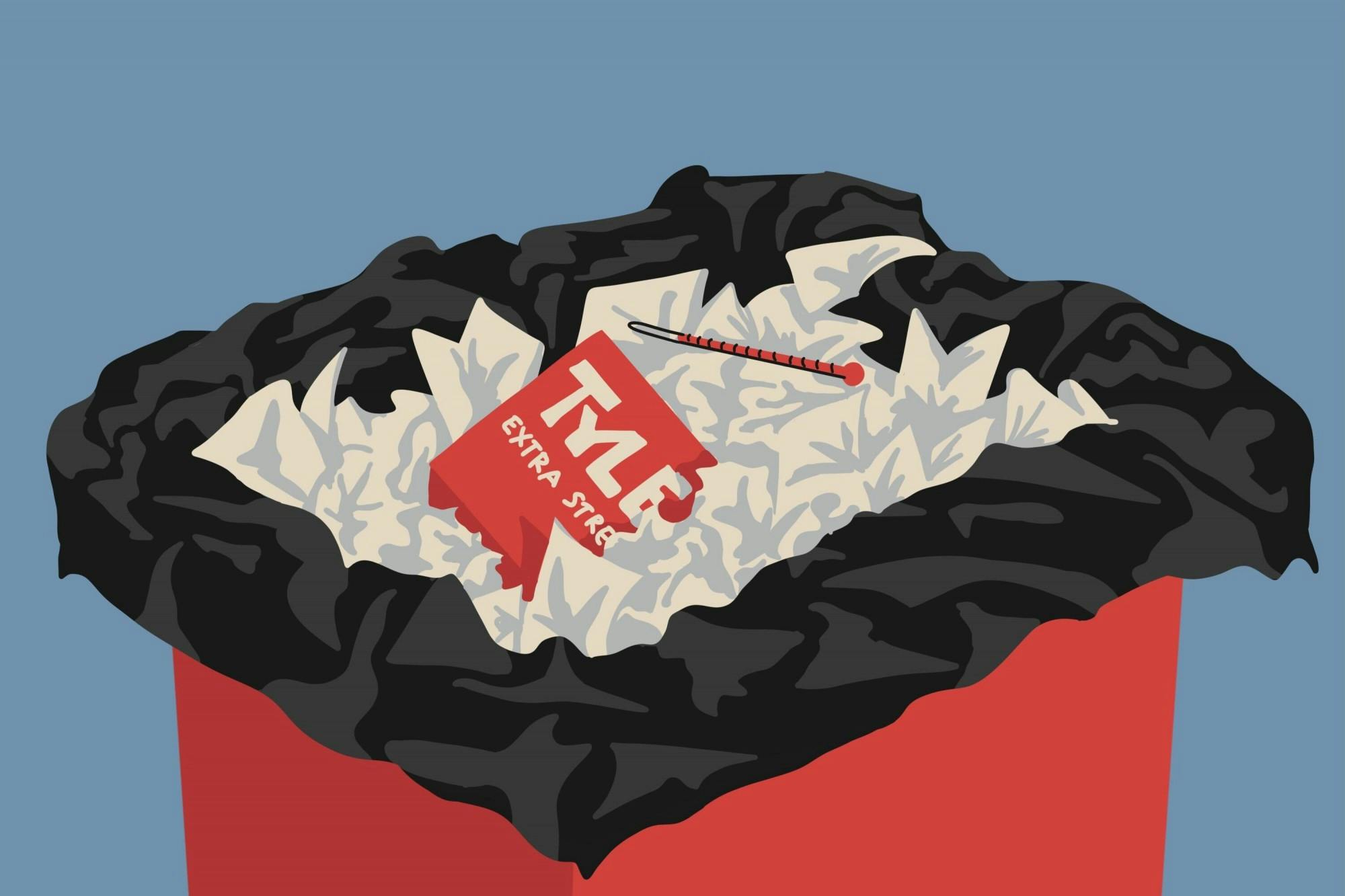One early Friday morning this winter, I awoke to the blaring of my alarm clock and begrudgingly rolled out of bed. As my feet hit the floor, the blood rushed from my head and I immediately became light-headed. Ugh. I didn’t have time for this, so I continued on with starting my day, but the ringing in my ears grew louder and my spotty vision became darker. As much as I tried to ignore it, the light-headedness was not going away. I remember putting in my right contact first, but my corrective lenses couldn’t make up for the black spots that began to consume my vision. As I brought my left contact lens to my eye, all of my senses seemed to escape me — until the hard wood of my bedroom door kindly caught my fall.
The moment I face-planted into my door, I knew I would not be attending my 9L, so I blindly stumbled back to bed and set an alarm for before my 10. Unfortunately, the extra 50 minutes of sleep meant nothing to the flu, and I could not make it to my second class either. I was forced to take a sick day.
Hold on — forced? To take a sick day? I realize how backwards this seems, but sick days at Dartmouth are an anomaly. A burden. A myth.
There are certainly days when people are sick, since it seems like every Dartmouth term involves a wave of illness spreading across campus. In fact, I have found myself getting sick at least once a term: I got the frat flu in the fall, during winter term I was knocked out by both the flu and COVID and this spring I have been burdened with a constant stuffy nose. I realize it sounds like I have an awfully weak immune system, but recurring illness is not out of the ordinary for Dartmouth students.
Kaitlin Kolb ’25 wholeheartedly agreed.
“I’ve definitely gotten sick at least once every term, and it usually lasts for multiple weeks — it’s pretty bad,” she said.
When a student is sick, it’s important for them to prioritize their health and get enough rest to ensure a quick recovery. However, Dartmouth’s fast pace and extensive workload can make this hard to do, since sick students are left with make-up work, Zoom links and a load of stress.
“I feel like because of Dartmouth’s really fast-paced terms, sometimes it’s really hard to catch up,” Claire Jung ’25 said. “It can be a little overwhelming just because of how fast paced everything is.”
If taking a sick day means having to miss class, Dartmouth students are reluctant to indulge, because they know that missing even one class can set you back.
According to Isa Robinson ’24, “I think it’s just really hard [to] miss one class because you just miss a huge chunk of notes and readings. Also, discussions are a huge thing to miss, and you can learn a lot from those.”
In a post-COVID world, recorded class lectures and Zoom links have alleviated some of the stress of being unable to attend class, but these options also discourage students from taking a sick day and getting the rest they need to recover.
“I’ve emailed a teacher telling them that I’m sick and can’t come to class, and they’ve responded by sending back a Zoom link,” Kolb said. “I think it’s definitely the expectation to go to class even if you’re sick, but to just attend virtually.”
The world doesn’t stop turning when a student gets sick, but Robinson said she often feels guilty asking for an extension, while Kolb lamented that taking an extension means getting further behind in class.
“It’s more worth it to just do the work when I’m sick, even if it means I’m not getting the rest I need,” Kolb said.
Therefore, a student’s “sick” day might just mean doing their work in their bed instead of the library, or attending classes on Zoom instead of in-person.
While Zoom links and recorded lectures might solve some issues, they also engender a host of problems and are constrained by technology. Robinson noted the difficulty of attending class virtually, since it can be difficult to hear the professor and sometimes the camera is pointed at a wall, missing the notes entirely. Other classes are not designed to be hybrid or taught virtually, so attending class via Zoom is not a perfect solution.
It is important to appreciate professors’ flexibility and efforts to accommodate students in light of COVID and the flu, which can be especially beneficial for students who feel fine but cannot attend class because they are contagious. However, in the case of students who are feeling genuinely terrible, virtual class lectures and Zoom links invalidate any excuse to miss class, making it so “it doesn’t really feel like you can take an actual day off,” according to Kolb.
Getting sick at Dartmouth seems to be a fact of life, but our fast-paced curriculum combined with a student body of over-achievers has changed the dynamics of a sick day. Some students, like Kolb, sacrifice their health in order to stay caught up on work, while others, like Jung, cram their work later on. Either way, the unrelenting Dartmouth term leaves sick students with piles of work to make up, and in the quest to avoid falling behind, they often don’t get the chance to actually rest and recover.




